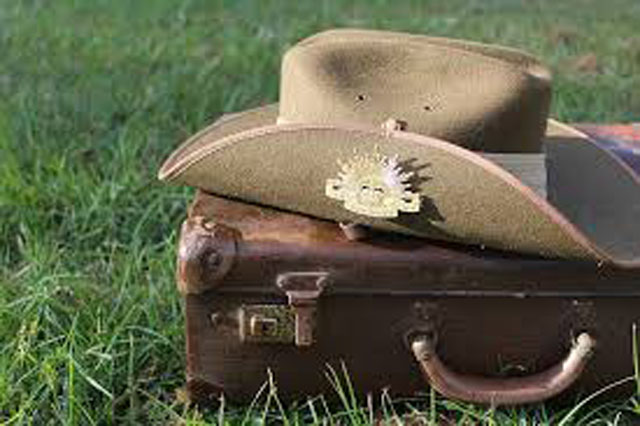
Next week the nation observes ANZAC Day in Australia. I serve as an RAAF chaplain based in Adelaide and served in Afghanistan in the military. Each year I find myself reflecting on what April 25 represents.
I wrote of this a few years ago and have updated my reflections in this article.
I must stress that ANZAC Day is not, nor should it ever be, about glorifying war. ANZAC Day points to something to someone greater.
As a veteran of Afghanistan, ANZAC day carries a great deal of personal significance. I remember being part of the 2011 ANZAC Day service in Kabul, where I was deployed at the time. Spending the morning with fellow soldiers, sailors, airmen and officers, we reflected sombrely on our own experiences and the experiences of so many before us.
It was a truly moving experience. Looking back it was perhaps the highlight of my time in the Middle East, if not my entire Defence Force career to date.
The dark side of ANZAC
However, not all wartime experience is positive. I won't share the details, but I personally went through, and also witnessed, some rather intense moments during my deployment. I'm also very aware that my experience was much easier than that of others.
It's also important to point out that everyone in the Defence Force sacrifices immensely. People move away from their families, go long periods without seeing their loved ones, and sacrifice their own lifestyle and comfort. Military service is typified by sacrifice.
All this may sound harsh, but I think it's important to remind ourselves that we are not romanticising or glorifying war or military service when we commemorate ANZANC Day.
Sometimes our culture does have an unhealthy relationship with war, to the point of even worshipping killing and death. Yet, I think this does a disservice to our service men and women, and belittles their sacrifice. Instead of pretending their experiences are glorious, we should be truly and honestly admitting they experienced horror and hardship.
On April 25 we reflect and remember what countless people have done, and continue to do for us, and we honour and remember their sacrifice.
Why go to war?
Now this can cause us to wonder why people would ever want to serve, or go to war. Why do people put themselves through this?
I honestly think the best answer is: love. We don't go because we hate people overseas and want to fight them, but because we love people and want to protect them whether they are in Australia or strangers overseas. Our mission in Afghanistan wasn't to fight as many of their people as possible, but to help remove a ruthless regime, so ordinary people could live in peace.
For all of the hardships I faced over there, there were also so many wonderful experiences: meeting people who were victims of the Taliban that wanted to thank us for the new hope that they had; meeting orphans now happy and being cared for; seeing people doing the 'normal' things they had not been able to do before.
Although military personnel may be asked to go through horrible things, I think it is worth the sacrifice for peace. This is one of the reasons we honour our Defence Force personnel on ANZAC Day: because they sacrificed so much, some even their very lives, out of love for people like us.
A sacrifice bigger than ANZAC
A self-sacrificial love for people, although central to the ANZAC ethos, was not invented by soldiers. In fact it is a foundational element of the biblical message.
Jesus repeatedly tells us to love God, and therefore to love others. Now the sort of love shown by Jesus, and by our veterans, is much more than a warm fuzzy feeling. Jesus tells us, 'Greater love has no one than this, that someone lay down his life for his friends' (John chapter 15, verse 13).
True love means putting other people first, putting their needs above your own and serving them, even if it is costly. Again, this is what the ANZACs, our war veterans, and service personnel embody, and this is why we honour them. Not because we agree with war on a political level, or because we think killing is romantic, but because of the love they showed for people, even to the point of death. They were willing to lay down their very lives out of love.
Finally, we see this Jesus' actions. 1 John chapter 3, verse 16 tells us, 'this is how we know what love is” Jesus laid down his life for us, so we ought to lay down our lives for others.'
The core of the gospel is this: Jesus loved God and loved people, so He willingly died for us. Humanity was separated from God due to sin, and deserved punishment. Our very lives were in danger just like the people around the world soldiers die to protect. Yet Jesus, the Son of God, loved us and therefore went into battle against sin, and was victorious by dying in our place. He sacrificed His life so that we could be saved, and have relationship and peace with God.
So, even as a veteran, I'm not pro-war. But I think regardless of how you view “war” we should be willing to honour those that lay down their lives. Even more so, we should honour and worship Jesus for the sacrifice He made in order to save believers.
 Hayden Lea has been a member of the Royal Australian Air Force since 2007, and is now an Air Force Chaplain. He is married to Shamsa Lea with a baby, and loves distance running and studying Theology.
Hayden Lea has been a member of the Royal Australian Air Force since 2007, and is now an Air Force Chaplain. He is married to Shamsa Lea with a baby, and loves distance running and studying Theology.
Hayden Lea's previous articles may be viewed at http://www.pressserviceinternational.org/haydn-lea.html

Haydn Lea is an Ordained Minister, and is currently serving as an Air Force Chaplain in Adelaide. He is married to Shamsa Lea, is the father of Amira, and loves running, boxing and studying history and theology. Haydn describes himself as a five-point Calvinist, but he recognises that many faithful Christians disagree. Thankfully he isn’t a cage-stage Calvinist about it all.